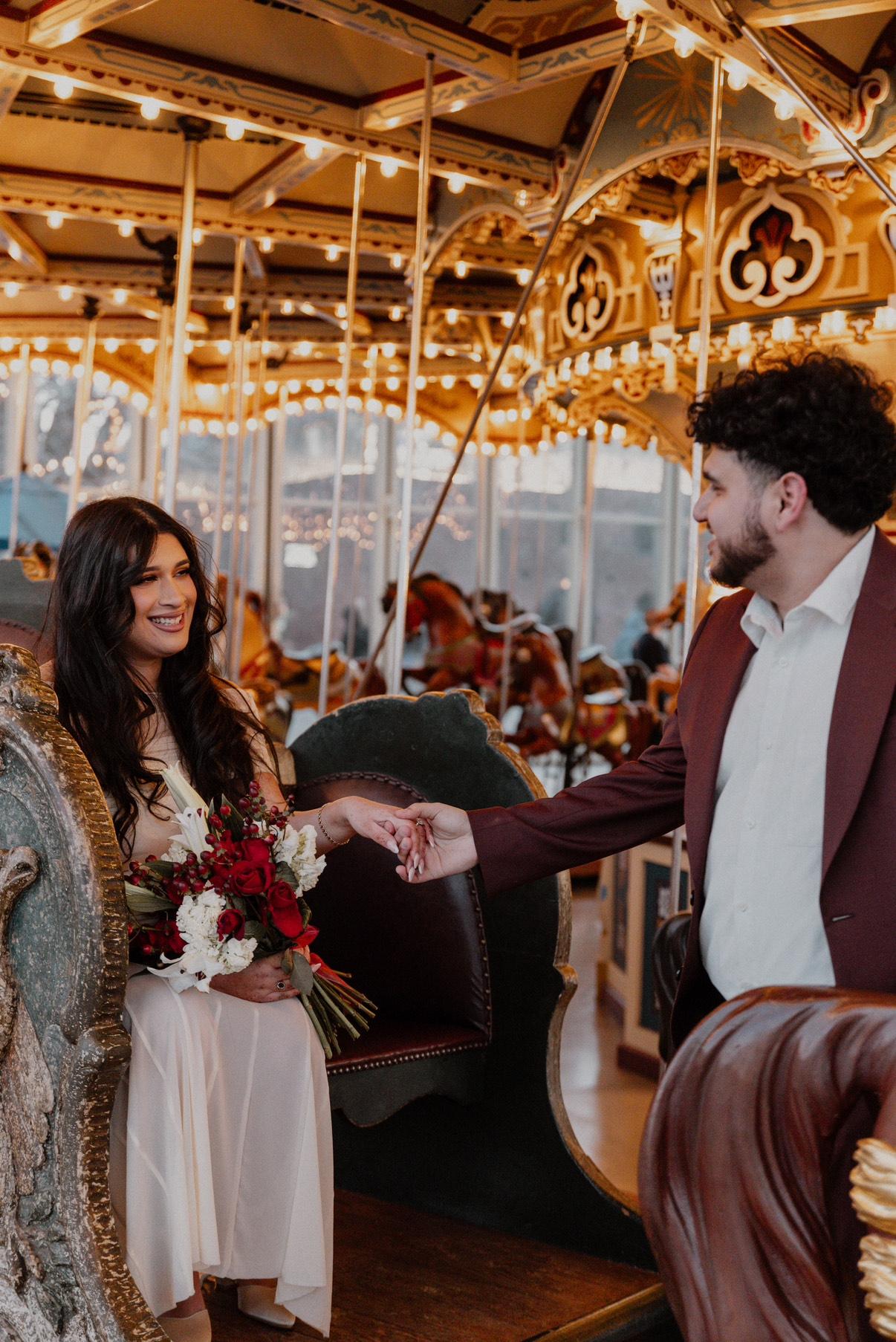Anum Zehra & Paulo Roberto


Q & A

Question
When should I RSVP by?
Answer
June 15, 2025
Question
Is there a dress code?
Answer
Nikkah: Women: Please wear formal Pakistani attire or a modest dress with a scarf covering. Please do not wear burgundy. Men: Please wear formal attire like a suit or a Pakistani Kurta. Mehndi: Please wear bright colors! You may choose to wear the same outfit as the Nikkah or change into something else. Formal attire requested. Please do not wear olive green/fushia pink Walima: Women: Please wear an elegant dress or Pakistani attire. Please do not wear white/ivory/baby pink Men: Please wear a suit and tie.
Question
What is a Nikkah Ceremony?
Answer
A Nikkah ceremony is a fundamental part of a traditional Pakistani wedding. It is the Islamic marriage contract that marks the formal union of a couple. In Pakistan, it holds religious and cultural significance. Here’s a breakdown of what typically happens during a Nikkah ceremony: Setting and Preparation: The Nikkah ceremony usually takes place in the presence of close family members and friends, either at the bride's home, the groom's home, or a mosque. A Molana or an authorized person conducts the ceremony and is responsible for ensuring that all religious rituals are properly followed. Marriage Contract: The Nikkah involves the signing of the Nikkah Nama (marriage contract), which outlines the rights and responsibilities of both the bride and the groom. Witnesses and Signatures: The Nikkah ceremony requires two witnesses, usually close relatives or friends, who sign the Nikkah Nama to formalize the union. Both the bride and groom must agree to the marriage, and their consent is often asked aloud by the Molana. The Exchange of Vows: The groom typically repeats the Nikkah vows in Arabic after the Maulvi. The bride also repeats them. The Molana also asks for the bride’s consent, and the groom expresses his agreement to the terms of the marriage. Dua (Prayer): After the contract is signed, a prayer (Dua) is offered for the couple’s happiness, love, and prosperity in their marriage.The ceremony is often followed by a formal blessing and recitation from the Molana or family elders. Traditional Customs: A flower curtain is placed in between both the bride and the groom and after the couple says ‘I do’, the groom kisses the bride on the forehead. After the ceremony, sweets are passed around to celebrate the couple’s union.
Question
What is a Mehndi?
Answer
A Mehndi ceremony is a significant wedding event in many South Asian cultures. It is a joyous and colorful occasion that typically takes place after the nikkah and involves the application of henna (known as mehndi) to the bride and sometimes her close family and friends. The ceremony is rich in tradition, music, and dance, making it an exciting and festive part of the wedding celebrations. Henna Application: The most defining feature of the Mehndi ceremony is the application of henna on the bride’s hands, feet, and sometimes arms. Intricate, beautiful designs are created, often including floral patterns, paisleys, and geometric shapes. The deeper the color, the better the prediction of a happy marriage. Celebration and Music: The Mehndi ceremony is often a lively, fun-filled event with music, dancing, and singing. Traditional songs, called dholki or mehndi songs, are performed by the bride’s and groom’s families, often with clapping, drumming, and dancing.Popular songs might include folk tunes or Bollywood-style hits, and the guests join in a circle or line to perform traditional dances as well. The bride and groom’s closest family and friends will perform dances to celebrate the couple. Decorations: The venue for the Mehndi ceremony is decorated with vibrant colors, such as yellow, green, and orange, symbolizing joy and prosperity. Flowers, lanterns, and colorful drapes are often used to set the mood. Customs and Rituals: In some traditions, the bride’s family may play small games with the bride, such as the "hiding of the groom’s shoes" game, where the groom's shoes are hidden by the bride's family, and he has to negotiate for them back. The bride may also receive gifts or tokens of love from her family and friends during the ceremony. Meaning and Symbolism: Mehndi is traditionally believed to symbolize good luck, prosperity, and fertility. It’s thought to be a way of blessing the bride and ensuring a happy and successful marriage.
Question
What is a Walima?
Answer
The Walima is a significant and formal celebration in a Pakistani wedding, traditionally held after the Nikkah and Mehndi ceremony. It is the marriage feast hosted by both families, and it symbolizes the public declaration of the marriage and the beginning of the couple's new life together. The Walima is a joyous occasion, and it is considered a way for the groom's family to formally introduce the bride to their community. Purpose and Significance: The Walima is a celebration of the marriage, where the groom's family hosts a grand feast to share the joyous occasion with relatives, friends, and well-wishers. It is also meant to announce the marriage publicly and invite people to witness and bless the newlyweds. In Islam, it is highly recommended for the groom to host this event, as it is seen as a symbol of the marriage being made public. Attire: The bride typically wears a formal, elegant outfit, often different from her wedding attire. It could be a heavily embellished dress or a simpler but classy gown, usually in a lighter color like white or pastel tones.The groom usually wears a formal suit. Traditions and Rituals: The Walima will be when the couple has their first dance. Speeches will be given by close family members and friends and recitations of poetry and the Quran will also be given. Symbolism in Islam: The Walima is also significant in Islamic tradition. It is recommended in the Hadith (sayings of the Prophet Muhammad) as a way of announcing the marriage and making it public. It is seen as a sign of happiness and blessing for the couple and their families.